Graham Reid | | 11 min read
Moana and the Tribe: Rangatahi
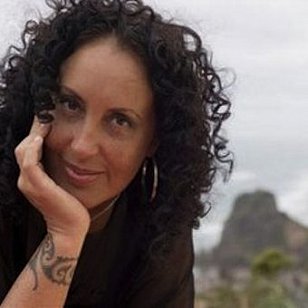
Moana Maniapoto has been around and seen around. Her life encompasses not just the music she has been known for in the past 25 years -- with her first band the Moa Hunters and more recently the Tribe -- but the political agenda that is right there on the surface.
She travels extensively for both and in the course of a long conversation about her new album Rima she traverse performing in Sarawak and Vladivostok, the increasing social divide in New Zealand, refers back to Springbok tour marches and more recently protests about off-shore oil companies.
Her album Rima – reviewed here, with messages about those multi-nationals, the emerging generation of young Maori, empowered women and the legacy of colonialism – finds her moving into new musical territory with Paddy Free (formerly of Pitch Black) who brings electronica into the mix. It pulls together haka, waiata and 21st century dance.
Elsewhere has long considered Moana one of the most important voices in New Zealand music, although critical opinion has also been divided.
What we've admired as much as the body of work she has built up, are how songs like AEIOU, Treaty, Moko, Ancestors and now Whole World's Watching on her new album have captured the zeitgeist.
And also her willingness to collaborate with local musicians, Native American artists and – in the Boomerang project which was unveiled at this year's Womad – Aboriginal and Scottish musicians (who appear on Rima on the swirling epic Water People).
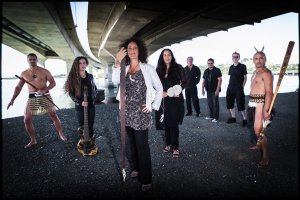 Where Moana and the Tribe haven't been
visible however is on home turf, their booking – which Moana and
manager Sol de Sully arrange themselves – take them offshore far
more often than they play here. Oddly enough it seem more
logistically difficult to tour New Zealand than go to Europe, as she
notes when talking about trying to pull together some dates here.
Where Moana and the Tribe haven't been
visible however is on home turf, their booking – which Moana and
manager Sol de Sully arrange themselves – take them offshore far
more often than they play here. Oddly enough it seem more
logistically difficult to tour New Zealand than go to Europe, as she
notes when talking about trying to pull together some dates here.
“I'm thinking about it because the intention is to take the band to half a dozen little places, but never having done that before I'm freaking out because all you seem to get is a space and date.
“You have to take a PA and everything to these places. It's easier overseas, so I have to make some hard decisions about how many we do, without funding, sponsorship or a venue bearing the cost, it's quite frightening. And we're picking places close to Auckland and Rotorua, because that's where the band splits in half.
“But if you have to bring a PA in which costs about $1800 to start with on top of travel -- and I always pay my musicians and we have to feed them and do posters . . . it starts to get to $4000 easily.
“I mean I think, 'But what would people do in Tokoroa on a Saturday night?' if we player there. But there might be some All Black final on the telly.”
You don't go up against the rugby league or the All Blacks.
“Oh no. I learned that when I was doing the Moa Hunters, never go up against a rugby game. The band doesn't want to go on stage if there's a rugby game either.”
She notes too that finding the right
venue is always a problem as the Tribe – with keys, drums, bass,
guitar and haka performers – is neither a pub or theatre band. It's
a performance which is hard to understand unless you've seen it and
she admits it is difficult had to write a genre description: “We're
not a cultural/showband/theatre act masquerading as a band. We just
pull in our cultural elements as another instrument. So there are
preconceptions around that.”
Then there's the perception she and
the band are constantly touring in Europe, Russia, Canada . . .
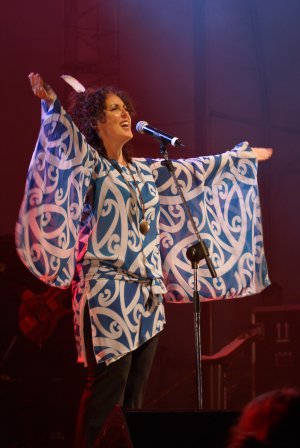 “People always say, “Oh you're here'
but actually I'm here most of the time. Most of core performing is
overseas but we're lucky to get into some arts festivals once in a
blue moon and Womad. I had to start my own festival to get us on
stage on Waitangi Day. Because we haven't toured around New Zealand I
still get people say, 'Ah, the Moa Hunters'. They are still locked in
that thing and not really understanding what it is we do.”
“People always say, “Oh you're here'
but actually I'm here most of the time. Most of core performing is
overseas but we're lucky to get into some arts festivals once in a
blue moon and Womad. I had to start my own festival to get us on
stage on Waitangi Day. Because we haven't toured around New Zealand I
still get people say, 'Ah, the Moa Hunters'. They are still locked in
that thing and not really understanding what it is we do.”
With any luck the new album with its massive beats, a possible single in House of Strife co-written and sung with Don McGlashan and the cachet Free brings could just get the music out to a broader audience. That is her hope anyway.
“I'm getting tremendous unsolicited feedback and there's such a cool groove to many of the tracks, but I don't know anything about radio or how that works. That's something we have to talk about with [distribution company] Rhythmethod. I'd hope it would extend us a bit and it certainly extended me creatively.”
She admits that in recent years she struggled with being inspired but once she established a creative relationship with Free she enjoyed the process of experimenting with different musical textures, layers and concepts. It was a challenge too because they started work on the album while touring overseas (tracks were recorded at Free's Piha studio outside Auckland and in Rotorua and Glasgow). I suggest that the album is a way out of the impasse which so many roots reggae bands find themselves in, a ghetto of good vibes which are unchallenging but often highly popular.
The “roots” music is just facile and unambitious reggae but on Rima the thumping beats associate equally with dub and haka.
“I hear lots of reggae and I love it, but we hear lots of different reggae when we're traveling, especially in Europe where there's more dub-inspired reggae. It is big dancey bombastic stuff. Some of the New Zealand reggae I feel I've been there and done it. It's sunny and Pacific and it just doesn't do it for me.
“I like the big mean bass that Paddy puts in, and the energy level is a big driver. New Zealand reggae has just gone a bit poppy.”
She also credits guitarist Cadzow Cossar for his “dark rock chords” and on the evidence of their album launch in Auckland on the small stage at Galatos 10 days ago, the rhythm section of drummer Mickey Ututaonga and bassist Marika Hodgson are a locked-down machine too.
“I love being like that, closer together on stage. On the big stages you are so distant from each other it dilutes the energy.”
Reflecting on the album she admits Warrior Woman – “which started off long and I had to chop the extra verses out” – is a bit too circular and needed more crafting although “I like the haka dubs, but maybe it needed a bit more meat in it”.
She laughs that for years she has been asked to sing Black Pearl – the soul song which she recorded in 1990 and went to number two on the New Zealand charts – and now hopes that one can be put behind her in favour of Warrior Woman.
She is especially pleased with the closing song Not Alone dedicated to Hek Busby and others who have revived the tradition of celestial navigation by sailing waka around the Pacific.
“I love it because I like the bookending of the two male vocalists who are very different. Scotty [Morrison] has that very traditional incantation which he wrote himself as if he was on the waka, he's got a voice like Shaggy to me. And Grant [Haua], I love his voice.”
The standout however is the opening song Whole World's Watching which brings together diverse musical elements (including the children's song Oma Rapeti) with references to the Springbok tour protest and the threat of corporate rapaciousness from off-shore multinationals.
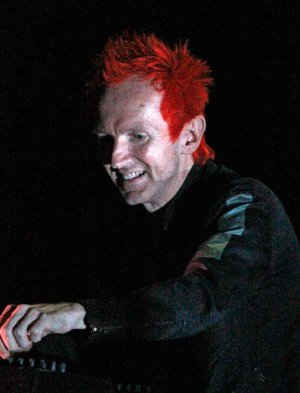 “Me and Paddy were talking about the
Springbok tour and doing all these [protest] marches so 'whole
world's watching' is still a phrase that pops up.
“Me and Paddy were talking about the
Springbok tour and doing all these [protest] marches so 'whole
world's watching' is still a phrase that pops up.
“And we were watching what was happing in Syria on the news, and the fact we can all see what is going on overseas these days . . . which brought that phrase back. And then we were talking about the Springbok tour and I was saying about how the rabbits got beaten up – I dunno where that came from! I got mixed up because it was [the people dressed as] clowns. I remember those times, and that worked in well using that phrase.
“It was a play on imagery, the rabbit in the hat popping out, and I wanted really big sound so that it was a positive thing. When Don [McGlashan] came in to do brass on House of Strife we asked him to do brass on Whole World's Watching too.”
Part of the genius is Oma Rapeti which slips in effortlessly and everyone knows.
“Yeah, we got our kids in to do it and – without getting too deep and meaningful – it is the whole concept of kapa haka where you get together as a group. I like that little play with 'oma rapeti' and the kids and adults together just having fun.”
Our conversation, inevitably, turns to politics. At the album launch when introducing the song Rangatahi she spoke about going to a graduation ceremony for her son and being inspired by seeing the confidence of young maori . . . but I tell her the counterpoint to that is in half a century Maori home ownership has plummeted from 62 percent to just 28 percent today. I invite her to discuss if she feels optimistic about the future for Maori. We've come a long way from the Nga Tamatoa movement of the late Sixties/early Seventies but . . .
“Hmm, there's been mixed progress. Rangatahi was a song that came to me real quick because I watched those kids jump on the marae and I thought, 'My God, this was 100 years away from where we were when we graduated in the Eighties'. They've got so much potential to use their language and identity across the media and in politics and government, and they are very confident and clear about who they are.
“They have their values in place and that's a really positive thing, and a lot of traditions have been revived like the celestial navigation. We are in better places now and the forums to discuss in the media. And have more in Parliament and so on.”
But then she talks with sadness about a Treaty settlement going down the gurgler as there is in-fighting in an iwi: “It's that tragic thing, if you haven't had anything for so long then you get it, it's divide and rule and greed.
“A lot of positive things have happened but there is a growing gap, and then there's the environmental stuff that is going to have a major impact. Mike Smith was very staunch on Maori political things but his focus now is on environmental matters because he believes that is where the biggest impact is going to be done to all of us.
“That's more of a priority but it also locks into traditional Maori values so there's a synergy there. How we should engage with the ocean and the land, and that's where there's an immediate panic.”
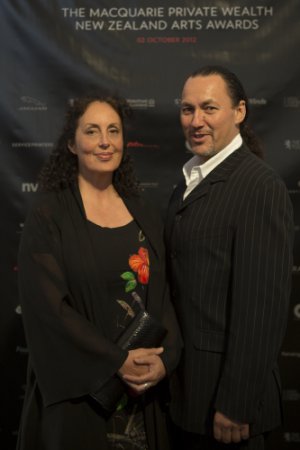 What we can also see perhaps is the
widening gap now starting between educated urban people and people
who have not had the advantage of education and are living in urban
environments, not just Maori but Pakeha as well. There is an enormous
schism opening up.
What we can also see perhaps is the
widening gap now starting between educated urban people and people
who have not had the advantage of education and are living in urban
environments, not just Maori but Pakeha as well. There is an enormous
schism opening up.
“I agree, and a higher percentage of Maori will be in that lower gap. We've worked in areas where we can encourage Maori families to expect more from schools, and put more pressure on schools to better support Maori families.
“We did a couple of creative projects where I had to go around and talk to parents and principals and teachers and find out where the disconnect is. There are some awesome principals doing great work and we need that leadership to make whanau want to walk in the gate,and make the kids think 'We can be a micro-biologist or an astronaut'.”
For the Maori Future Makers website she, her partner and filmmaker Toby Mills (above) and others interviewed 30 young Maori in less traditional positions (marine scientists, microbiologists, games developers and so on) to motivate young Maori.
She laughs that as she goes around she realises she has forgotten part of her life – like being on Aotearoa Radio – but others remember her from back then.
“People of my age are in positions of power, they are the principals or businessmen or politicians, you get a lot of hook-ups as you get older. People you were at varsity with maybe. You are looking to send an e-mail to the Fisheries Commission and you see the name and you go, 'Hell we used to sit in cafe gambling'.”
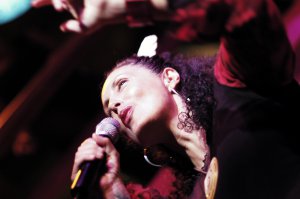 And on the album is House of Strife
which came as commission through Mills and Sonny
Arahanga who wanted a song to accompany video footage in the
visitor's centre at Waitangi.
And on the album is House of Strife
which came as commission through Mills and Sonny
Arahanga who wanted a song to accompany video footage in the
visitor's centre at Waitangi.
At Arahanga's suggestion – because he'd worked with McGlashan on the Songs From the Inside prisoner songwriting project – she met McGlashan on a Thursday for lunch and Mills then asked if they could sort it out by Monday because they needed it done for Tuesday.
“Don said he was going to Canada on Monday, so I wrote some lyrics and sent them to him on the plane. They were a bit dark. It was trying to reflect that Treaty relationship without being happy chappies or Once Were Warriors dark and mean stuff. He came back with the lyrics in response to another story I'd told him. He had a melody and e-mailed it over from Vancouver.
“It wasn't going to be on the album and I'd play it to anyone who was in the house and they'd all say, 'Oh now that's choice, I loooove that one!'
“Everyone thought that was awesome and they'd say, 'Are you going to put that on the album?' And I'd say I didn't think it would fit, but then it would have been churlish not to.
“I like it because it reminds me of a singalong party song, but the torture was how to fit it on the album because there's a different kind of feel to it.”
The solution was to have McGlashan add a brass intro which referred to the Rangatahi brass . . . and mission accomplished.
I remind it's the one track on the album I don't like because it doesn't fit, but that after they played it at the launch I said to my wife, “It's a hit”.
She laughs: “Yeah, how annoying is that? I'd rather have Whole World's Watching or Water People a hit.”
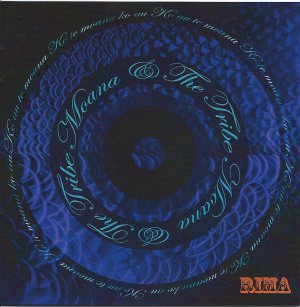 On your behalf me too. Maybe
Rhythmethod can make one of them happen for you?
On your behalf me too. Maybe
Rhythmethod can make one of them happen for you?
“I don't know how hits happen anyway. Our songs are too long anyway. I never write for radio because that just doesn't work and Paddy just doesn't do short.
“He doesn't do three minutes, it gets to seven and half and I'm saying I think we should pull it back. Then we have discussions and do a slash and burn. Upokohue [on the album, now nearly six minutes] was about 7.10, I said, 'Let's lop a bit off' and they were just my demo vocals. I thought I'd add a sentence here or there while recording and he said, 'Leave it with me' and when I came back they were all in there. But it works.”
It sounds like an album ripe for a remix too?
“Paddy would be into that. He's like a mad scientist in the studio and adding all these creepy little things in. He asks if i'm bored but I'm fascinated. But it's easy to get into adding bits like a bass line or a texture, and the next minute you've been there six hours. It's fun and I love it.
“I haven't worked with anyone like Paddy for ages.”
To listen to a free stream of The Best of Moana and the Tribe go here. Moana's extensive website is here.


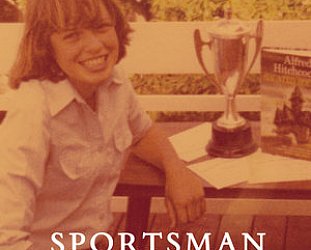
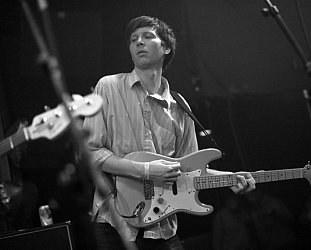
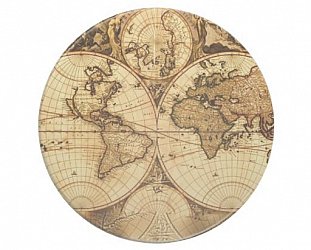
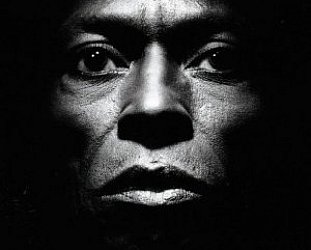

post a comment